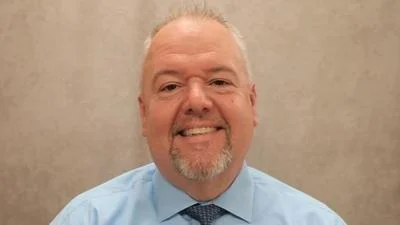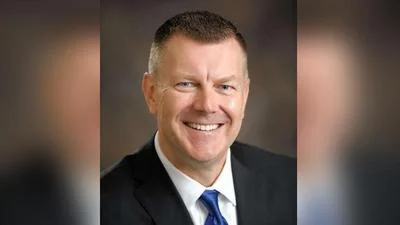Laura Ellman, Illinois State Senator from 21st District (D) | https://www.facebook.com/senatorellman
Laura Ellman, Illinois State Senator from 21st District (D) | https://www.facebook.com/senatorellman
According to the Illinois General Assembly site, the legislature summarized the bill's official text as follows: "Amends the Fish and Aquatic Life Code. Requires an aquatic habitat conservation stamp for every person obtaining a resident or non-resident license under the Code. Creates the Aquatic Habitat Conservation Fund as a special fund in the State Treasury with fees from the sale of aquatic habitat conservation stamps deposited into the fund and with appropriations from the Fund solely to the Department of Natural Resources to be used only (i) for the management, restoration, and protection of aquatic and riparian habitats in Illinois, (ii) for elimination of or protection from aquatic nuisance species, and (iii) for preparation for and protection from the effects of climate change in Illinois, including increased risks of flooding, erosion, and sedimentation. Defines terms. Makes conforming changes to the State Finance Act."
The following is our breakdown, based on the actual bill text, and may include interpretation to clarify its provisions.
In essence, the bill amends the Fish and Aquatic Life Code to mandate an aquatic habitat conservation stamp for anyone seeking a fishing license in Illinois. It introduces the Aquatic Habitat Conservation Fund, directing revenue from stamp sales to be used by the Department of Natural Resources for managing, restoring, and protecting aquatic and riparian habitats, combating aquatic nuisance species, and preparing for climate change impacts like flooding, erosion, and sedimentation. The fund is distinct within the State Treasury and its allocations are limited to the stated environmental objectives. The bill stipulates a $6 fee for the stamp, waived for residents over 75, and makes enforceable additions to related sections for compliance and administration. The stamps expire annually on March 31.
Laura Ellman has proposed another three bills since the beginning of the 104th session.
Ellman graduated from Grinnell College in 1987 with a BS.
Laura Ellman is currently serving in the Illinois State Senate, representing the state's 21st Senate District. She replaced previous state senator Michael Connelly in 2019.
Bills in Illinois follow a multi-step legislative process, beginning with introduction in either the House or Senate, followed by committee review, floor debates, and votes in both chambers before reaching the governor for approval or veto. The General Assembly operates on a biennial schedule, and while typically thousands of bills are introduced each session, only a fraction successfully pass through the process to become law.
You can read more about bills and other measures here.
| Bill Number | Date Introduced | Short Description |
|---|---|---|
| SB1311 | 01/28/2025 | Amends the Fish and Aquatic Life Code. Requires an aquatic habitat conservation stamp for every person obtaining a resident or non-resident license under the Code. Creates the Aquatic Habitat Conservation Fund as a special fund in the State Treasury with fees from the sale of aquatic habitat conservation stamps deposited into the fund and with appropriations from the Fund solely to the Department of Natural Resources to be used only (i) for the management, restoration, and protection of aquatic and riparian habitats in Illinois, (ii) for elimination of or protection from aquatic nuisance species, and (iii) for preparation for and protection from the effects of climate change in Illinois, including increased risks of flooding, erosion, and sedimentation. Defines terms. Makes conforming changes to the State Finance Act. |
| SB1293 | 01/28/2025 | Amends the Code of Criminal Procedure of 1963. Provides that the warrant of arrest or summons shall command that the person against whom the complaint was made to be arrested and brought before the court issuing the warrant at a certain day, time, and courtroom number, or the nearest or most accessible court in the same county, or appear before the court at a certain time and place. Provides that if a person has a warrant in another county for an offense and the county where the warrant is outstanding fails to transport the person to the county where the warrant was issued for a hearing no later than 5 calendar days after the end of any detention issued on the charge in the arresting county, the county where the warrant is outstanding shall mark the warrant as served (rather than quash the warrant) and order the person released on the case for which the warrant was issued. Provides that if the issuing county fails to take any action within 5 calendar days, the defendant shall be released from custody on the warrant, and the circuit judge or associate circuit judge in the county of arrest shall set conditions of release and shall admit the defendant to pretrial release and shall schedule for his or her appearance before the court named in the warrant based upon the court day, time, and courtroom number listed on the warrant. |
| SB1225 | 01/24/2025 | Amends the Illinois Public Aid Code. Expands the categories of families eligible for child care assistance to include families with a parent or guardian who is employed as a mental health care worker, teacher, or health care provider and has income below the specified income threshold established for such families. Provides that notwithstanding any other provision of law or administrative rule to the contrary, beginning in State Fiscal Year 2026, for families with a parent or guardian who is employed as a mental health care worker, teacher, or health care provider, the specified income threshold shall be no less than 300% of the then-current federal poverty level for each family size. Defines terms. Effective July 1, 2025. |
| SB0008 | 01/13/2025 | Creates the Safe Gun Storage Act. Provides that a firearm owner shall not store or keep any firearm in any premises where the firearm owner knows or reasonably should know a minor without the lawful permission of the minor's parent, guardian, or person having charge of the minor, an at-risk person, or a prohibited person is likely to gain access to the firearm unless the firearm is secured in a locked container, properly engaged so as to render the firearm inaccessible or unusable to any person other than the owner or other lawfully authorized user. Provides that if the firearm is carried by or under the control of the owner or other lawfully authorized user, then the firearm is deemed lawfully stored or kept. Provides that a violation of the Act is subject to a civil penalty not to exceed $500, except (i) if any person knows or reasonably should know that a minor, an at-risk person, or a prohibited person is likely to gain access to a firearm belonging to or under the control of that person, and a minor, an at-risk person, or a prohibited person obtains the firearm, the civil penalty shall not exceed $1,000 and (ii) if a minor, an at-risk person, or a prohibited person obtains a firearm and uses it to injure or cause the death of a person or uses the firearm in connection with a crime, the civil penalty shall not exceed $10,000. Provides that the court may order a person who is found in violation of the Act to perform community service or pay restitution in lieu of the civil penalties imposed under this Section if good cause is shown. Provides that nothing in the Act shall be construed to preclude civil liabilities for violations of the Act. Provides that a violation of the Act is prima facie evidence of negligence per se in any civil proceeding if a minor, an at-risk person, or a prohibited person obtains a firearm and causes personal injury to the death of oneself or another or uses the firearm in the commission of a crime. Provides that an action to collect a civil penalty under the Act may be brought by the Attorney General or the State's Attorney of the county in which the violation occurred. Provides that any money received from the collection of a civil penalty under the Act shall be deposited in the Mental Health Fund. Defines terms. Amends various Acts to make conforming changes. Effective January 1, 2026. |






 Alerts Sign-up
Alerts Sign-up